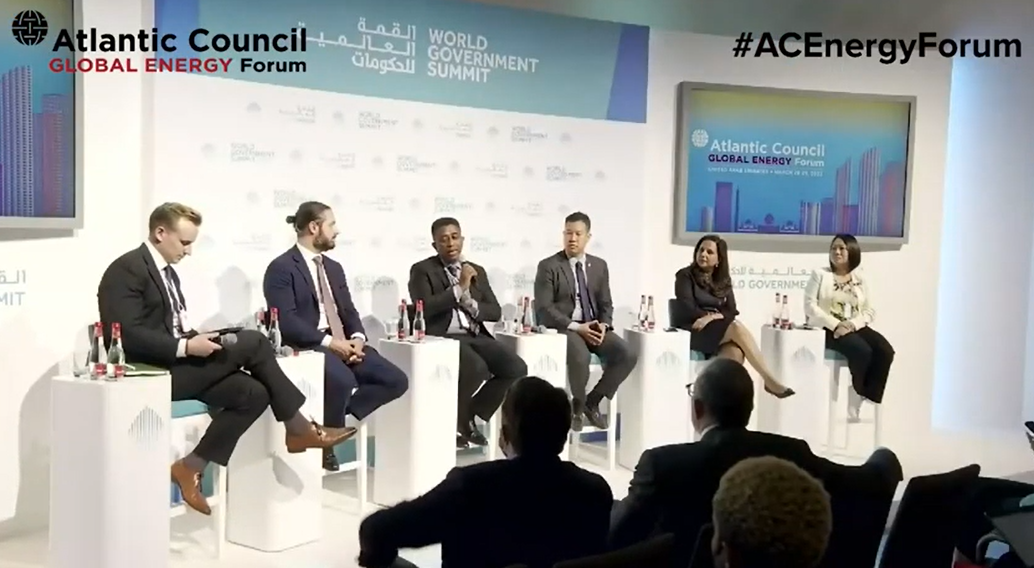
Regional cooperation will be increasingly crucial to achieving shared objectives for South and Southeast Asia's decarbonisation efforts. This will require a nuanced understanding of the region's diverse needs. However, recent world events have underscored the need to also balance climate ambitions with immediate, near-term energy security.
This was the main takeaway from the panel of think tank, government, and private sector speakers in dialogue on "Climate and Energy Opportunities in South and Southeast Asia". The session, held in Dubai on 29 March, was part of the Global Energy Forum hosted by the Atlantic Council’s Global Energy Center, in partnership with the United Arab Emirates’ Ministry of Energy and Infrastructure.
Extraordinary challenges ahead
Moderator Reed Blakemore, Deputy Director, Global Energy Center, Atlantic Council, opened the session by noting that this is a region at the starting block of pursuing both energy transition, climate goals and solidifying its energy security at the same time. This makes the pathways that it can take "extraordinarily diverse", he said.
South and Southeast Asia are expected to account for the vast majority of energy demand growth until 2050. But the return of pre-pandemic energy consumption, inflation and the Russian invasion of Ukraine have dampened any hopes of a swift transition away from hydrocarbons and decarbonisation plans for major industries.
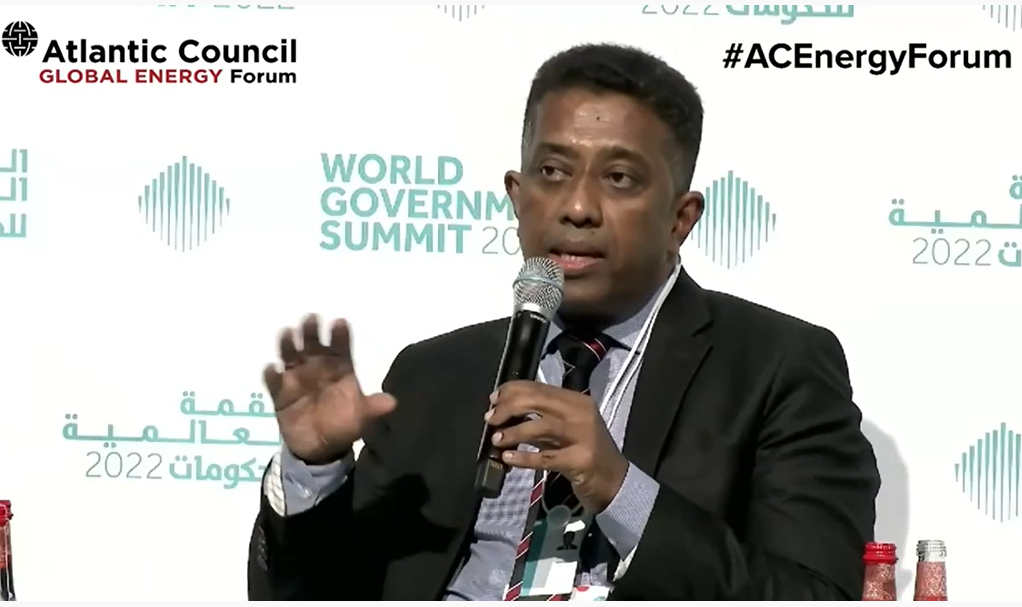
Binu Parthan, Head of Regions, International Renewable Energy Agency.
Pathway to net zero still possible
While the challenge for the region seems immense, Binu Parthan, Head of Regions, International Renewable Energy Agency (IRENA), remains positive. He believes it is possible to have an energy transition aligned with the Paris Agreement goals, in a manner that offers positive economic, environmental and social benefits for the region, including significant job growth.
Mr Parthan announced the launch of IRENA's latest World Energy Transitions Outlook: 1.5°C report, which provides a clear pathway for the world to decarbonise. He also shared that an energy transition roadmap is being developed for ASEAN, which will be available later this year.
The displacement of coal from Asia's energy mix continues to be an urgent priority. Towards this end, IRENA's cost analysis shows that coal is no longer a viable power option. Mr Parthan said that for the past seven to eight years, "renewable energy investments have outpaced coal and other power options consistently".
Still, he acknowledged that plenty of utilities in the region "are worried about the instability of the grid when you go beyond 30-40% (of renewables in the mix)". He believes that where Asia will see significant opportunity is in flexibility technologies such as energy storage, which will increase grid flexibility and enable greater integration of renewable energy.
Interconnections to power grid flexibility
This is where regional interconnections provide an interesting option, said Mr Parthan. Elaborating on this, he said "for every 1° longitude that you go, you have a savings of about 1 hour of energy storage or so. And that is something you can achieve by interconnections".
Connecting grids across ASEAN has been an ongoing effort for years, said Desiree Tung, Deputy Director of External Relations, Energy Market Authority of Singapore. Singapore is partnering with our ASEAN counterparts to facilitate cross-border power trade through the Lao PDR-Thailand-Malaysia-Singapore Power Integration Project (LTMS-PIP). These projects will bring us a step closer towards an ASEAN Power Grid. Tapping on regional power grids will allow Singapore to overcome its limited renewable energy options to decarbonise the power sector and improve the region’s energy resilience.
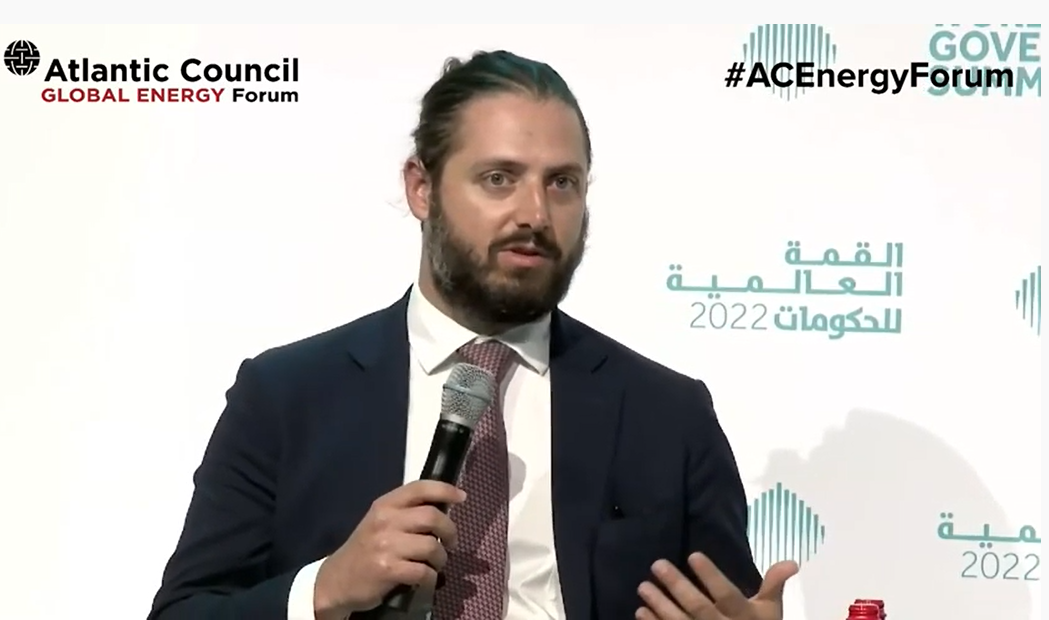
Robert Fee, Vice President of International Affairs and Commercial Development, Cheniere Energy.
Fuel diversity vital for energy security
On the flip side, interconnectivity brings its own complex challenges. Robert Fee, Vice President of International Affairs and Commercial Development, Cheniere Energy, noted that prior to the war in Europe, the LNG and global gas markets were already experiencing a significant tightness because of global interconnectivity. Weather events further impacted electricity markets. "Going forward both in the short and long term, there's going to be no silver bullet… (but) having energy diversity and multiple redundancies is going to be important."
In this, the panellists concurred that strength in energy security lies in energy diversity.
But because every country in the region will have different needs, there is no one-size-fits-all solution to decarbonise Asia's energy mix, said Kavita Gandhi, Executive Director, Sustainable Energy Association of Singapore. "We should not try to box it up or have a formula that applies everywhere", she said. What is needed, she felt, are political will, sound policies and clear messaging.
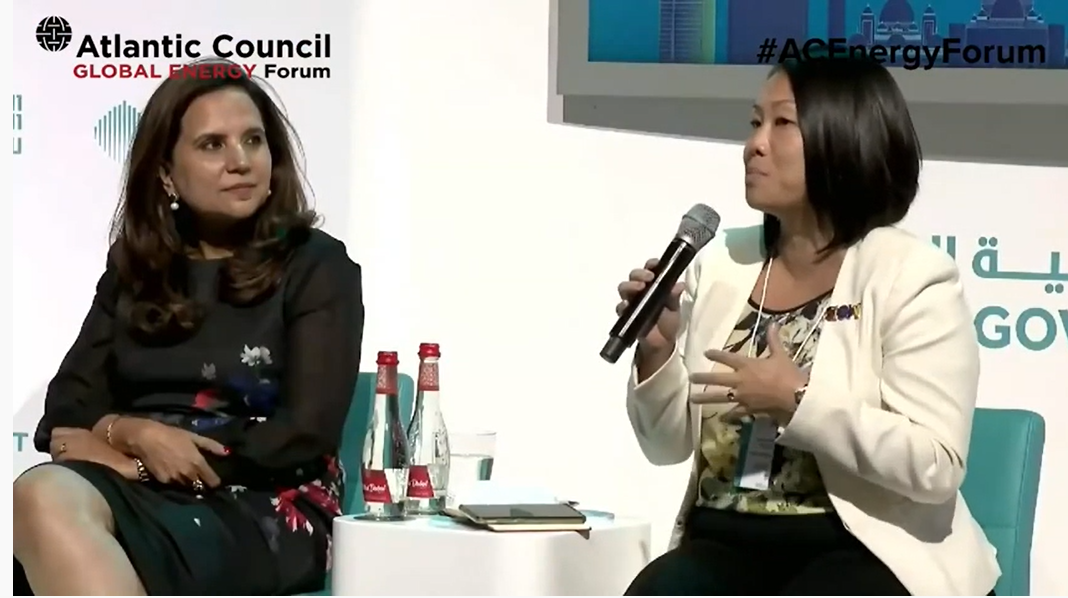
Kavita Gandhi, Executive Director, Sustainable Energy Association of Singapore (left) and Desiree Tung, Deputy Director of External Relations, Energy Market Authority of Singapore (right).
Citing Singapore as an example of what can be achieved when clear government commitment, strong policy implementation and effective communication meet, both Ms Ghandi and Ms Tung highlighted Singapore's Green Plan. This sets out new initiatives and targets to advance the country's green transition, and has helped catalyse R&D funds into Singapore's clean energy sector.
Ms Tung also shared that a key part of Singapore's energy reset is diversifying its fuel mix. This harnesses "four supply switches" comprising natural gas, solar, regional imports and low carbon alternatives, underpinned by energy efficiency to power Singapore's low carbon goals.
Why natural gas is staying
Indeed, even as Asia pursues decarbonisation, natural gas must continue to play a critical role in the region's energy security and climate aspirations. Supply shortages and price spikes have illustrated the danger of divesting from fossil fuels without building out enough renewable energy to replace the former.
Mr Fee and Derek Wong, Senior Director of Government and Public Affairs at Excelerate Energy, both highlighted the importance of natural gas to balance and support a wide expansion of renewable energy in the region, while also achieving significant emissions reductions.
Mr Fee believes natural gas infrastructure can work in tandem with renewables development, especially with demand for energy rising in the region. Phasing down coal and gas at the same time "is going to leave nations not only insecure from an energy perspective, but also not meet their economic demands", he said, adding that this has to be aligned with each country's development pathway and climate commitments.
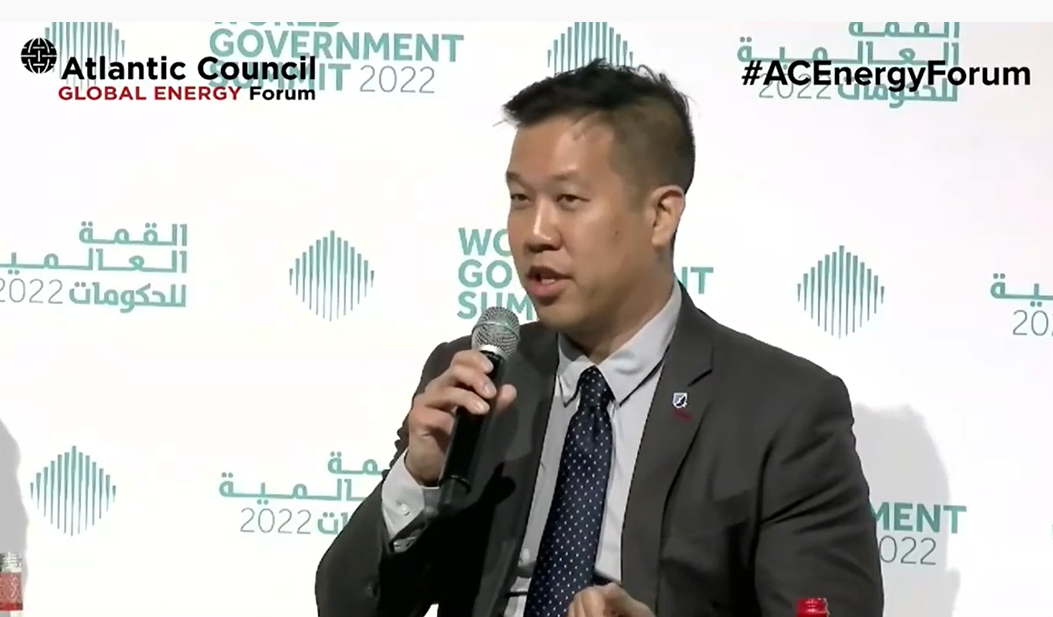
Derek Wong, Senior Director, Government and Public Affairs, Excelerate Energy.
The natural gas infrastructure does not have to be landlocked either, said Mr Derek Wong, Senior Director, Government and Public Affairs, Excelerate Energy. He explained that one of the biggest benefits of floating storage and regasification units, or floating LNG terminals, is the fact that they are scalable, can be deployed more quickly and don't need the land requirements of land-based terminals.
"You need to be able to have that security of supply to accompany the pathways to decarbonisation. And so, being able to quickly and responsibly build out that infrastructure is a really key part of the equation," he added.
Towards a collective goal
It has become acutely clear among the panellists, against rising geopolitical tensions and the energy crisis, that countries in Asia will need to rethink their energy strategy between pushing for ambitious climate targets and keeping the lights on.
In shifting the needle, Ms Tung pointed out that the energy transition "is not something we can do single-handedly. It is a collective goal that we have to work towards together".
Looking ahead to SIEW 2022
Want to hear directly from the energy experts, decision-makers and thought leaders on their insights and perspectives? Join us at the Singapore International Energy Week (SIEW) 2022, taking place on 25-28 October. Register your interest here.